1930s
Crazy Pygmy—Hilarious Dancing
What day is not brightened by the inexplicable and thoughtlessly ridiculed antics of a small person?
Posted By: Paul - Fri Nov 01, 2013 -
Comments (2)
Category: Beauty, Ugliness and Other Aesthetic Issues, Ethnic Groupings, Human Marvels, 1930s, Dance
Harry Rogers, The Fire Clown
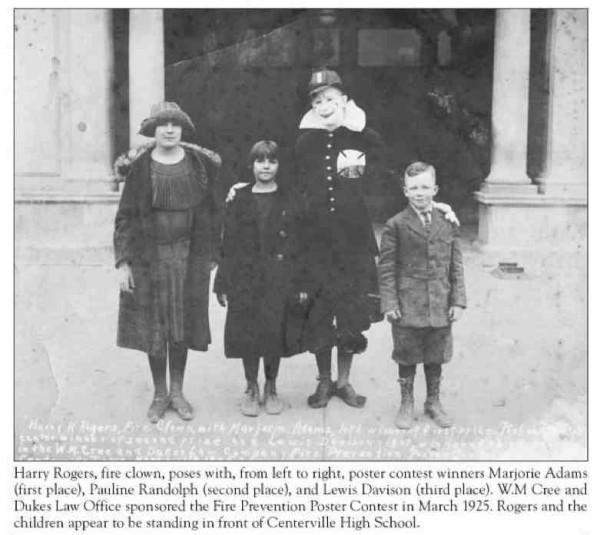
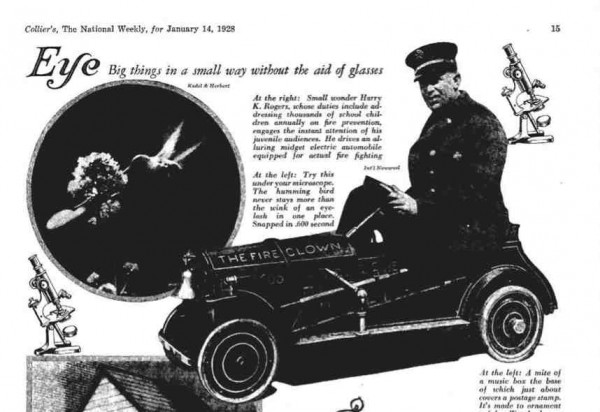
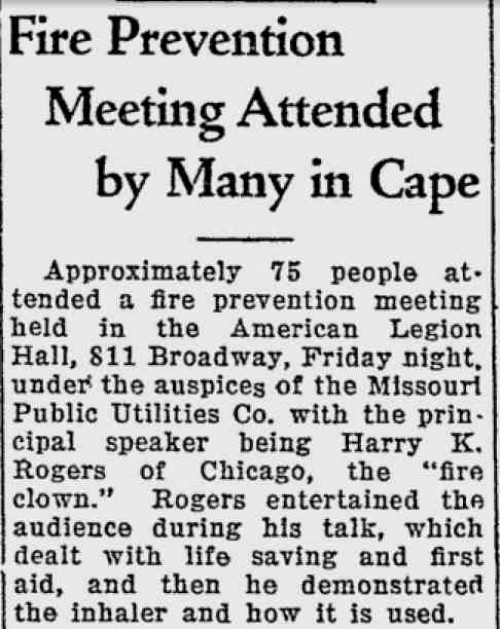
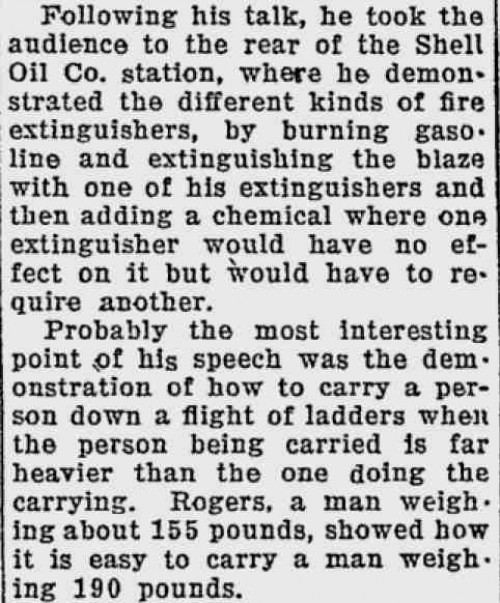
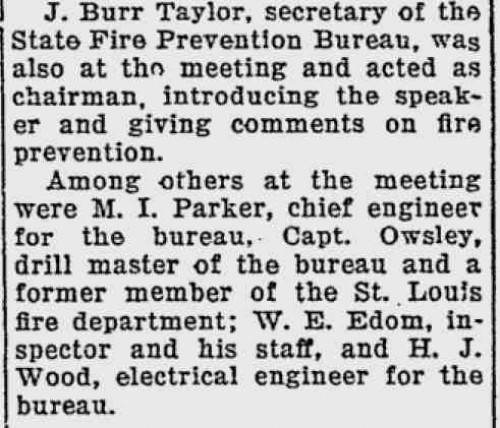
Original article here.
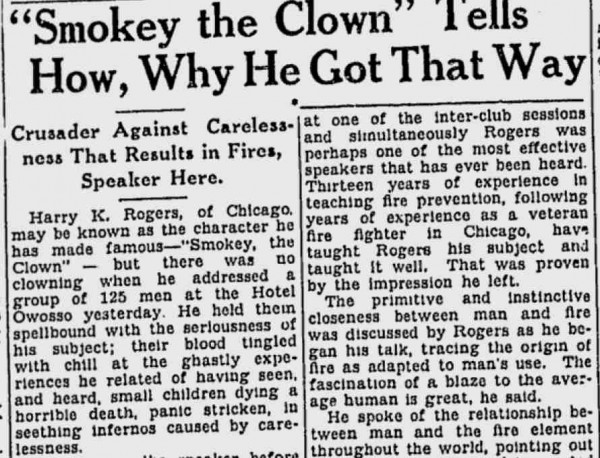
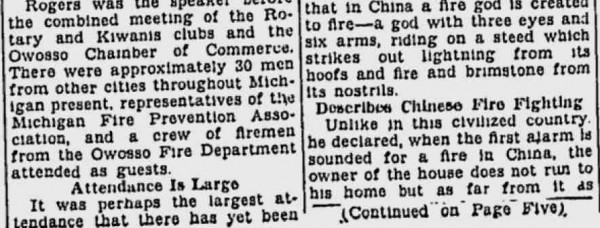
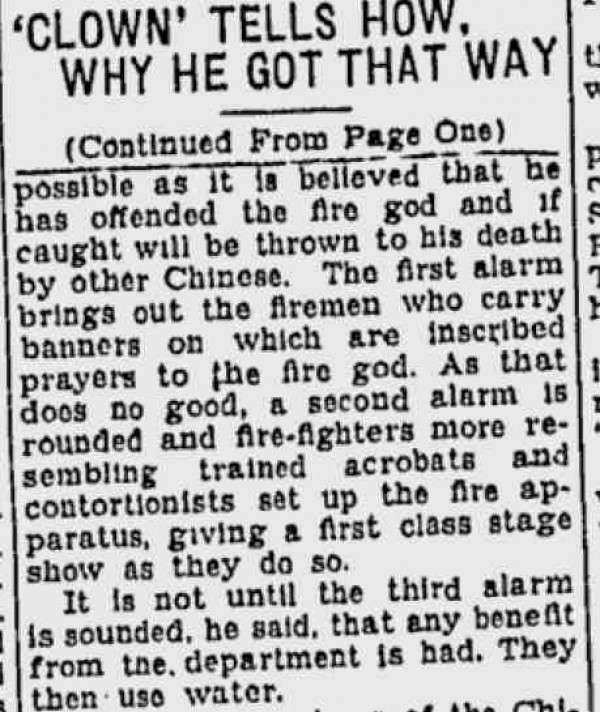
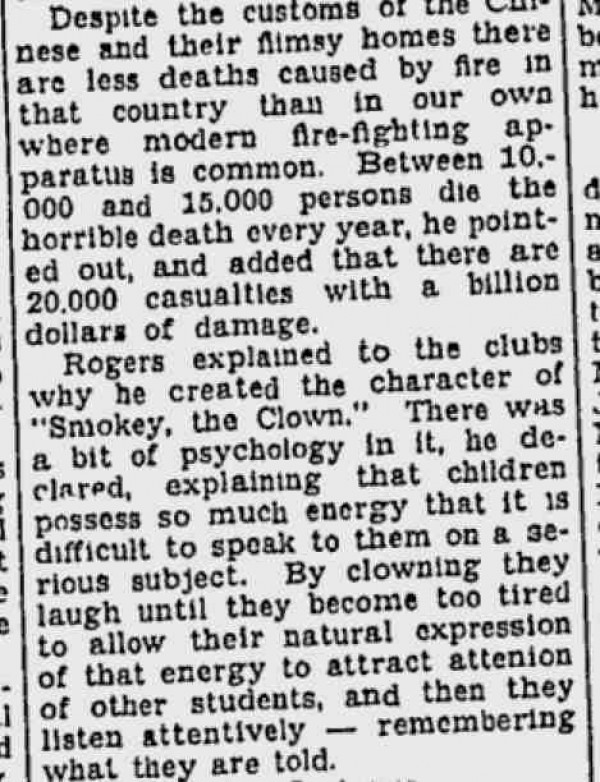
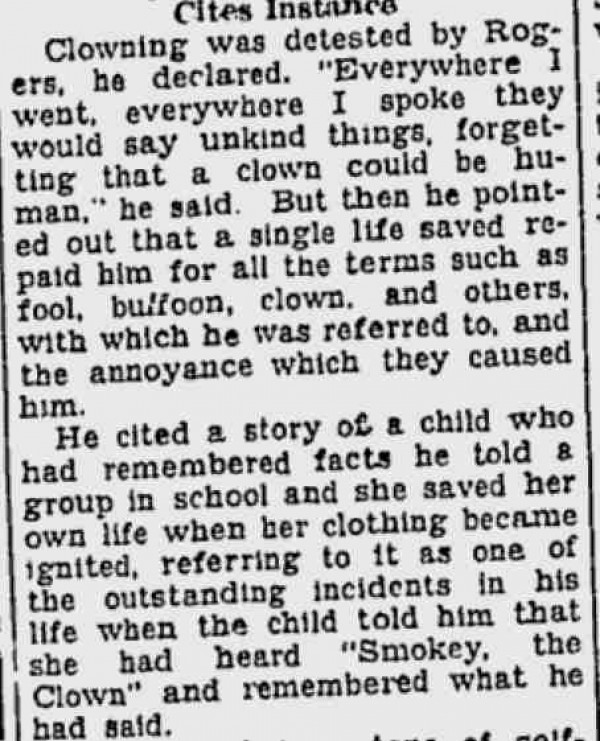
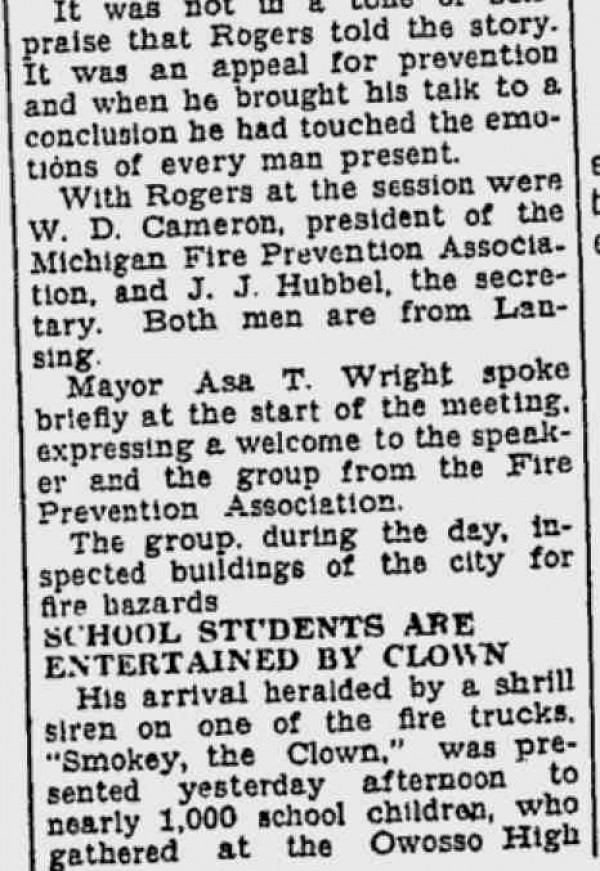
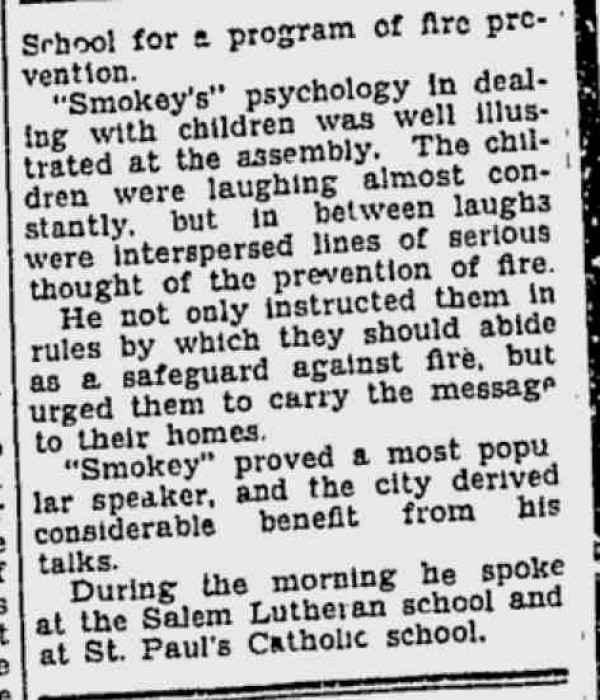
Original article here.
Posted By: Paul - Wed Oct 30, 2013 -
Comments (8)
Category: Clowns, PSA’s, 1920s, 1930s
Undersea Kingdom
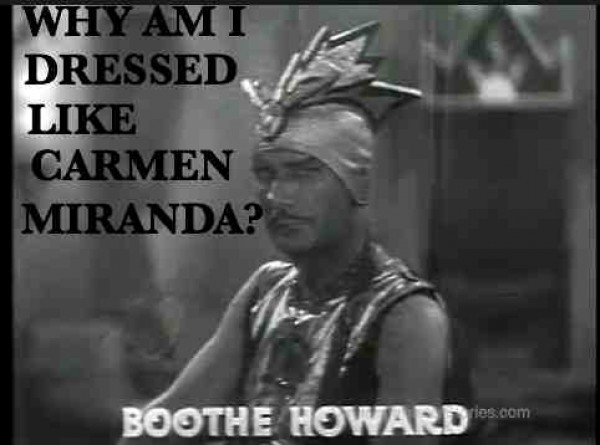
Find the answer by watching Undersea Kingdom!
Wikipedia entry.
Posted By: Paul - Sat Oct 26, 2013 -
Comments (3)
Category: Movies, 1930s
Raise Giant Frogs
During the 1930s and 40s, there was good money to be made by raising giant frogs, as evidenced by the number of ads promoting this income opportunity.The plan was to buy the booklet "A Future in Frogs." Start growing the giant frogs. Sell them to the American Frog Canning Co. Then count all your money!
The booklet "A Future in Frogs" seems to have entirely disappeared. I can't find any copies used or in libraries. The world has lost a literary classic.
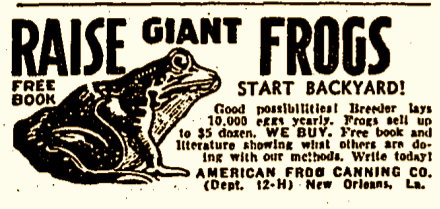
Modern Mechanix - Jan 1936

Los Angeles Times - June 21, 1936
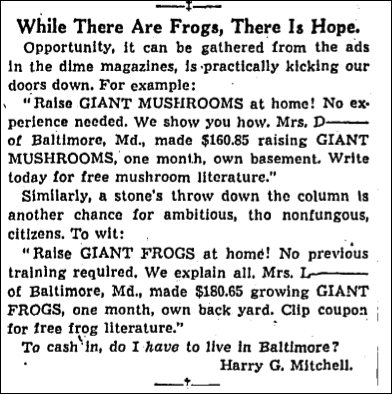
Chicago Tribune - Dec 4, 1940
Posted By: Alex - Sat Oct 26, 2013 -
Comments (8)
Category: Animals, Advertising, 1930s
Voiceless man learns to sing
After losing his larynx and windpipe to cancer, Herman Schulenberg created a new windpipe for himself by ramming a white-hot ice pick through his flesh. Then he learned to sing through this opening by "closing the windpipe's artificial opening with his index finger and manipulating his neck with his other fingers" in order to "direct the air through the passage in such manner as to get a variety of tones."Finally, he gave a singing performance before a group of 50 doctors at a meeting of the Milwaukee Oto-Ophthalmic Society. That would have been a strange concert to attend. From the San Antonio Express - March 3, 1935.

Posted By: Alex - Tue Oct 22, 2013 -
Comments (7)
Category: Music, 1930s
Taxidermied Frog Orchestra
I came across this ad in Boys' Life - Oct 1935. Then I realized that Paul had already posted a version of the ad two years ago. But I decided to post this version anyway, since it shows the Taxidermied Frog Orchestra. I wonder how many kids actually went ahead and made one of these.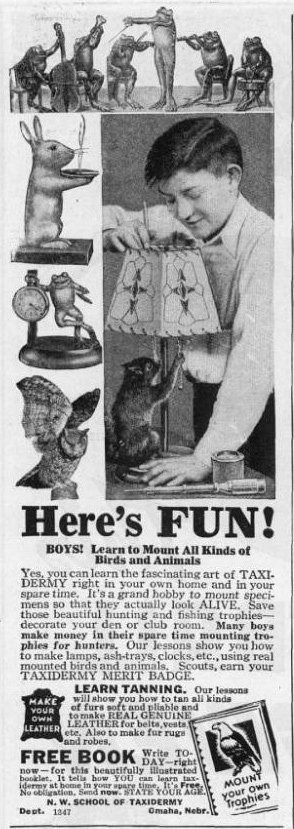
Posted By: Alex - Sat Oct 19, 2013 -
Comments (4)
Category: Hobbies and DIY, Taxidermy, 1930s
The Ammunition Hat
Practical and stylish!
From: Modern Mechanics, Apr 1932
Posted By: Alex - Thu Oct 17, 2013 -
Comments (8)
Category: Fashion, Headgear, 1930s
Old age to be only cause of death!
Milford Barnes was the Head of the Department of Hygiene and Preventive Medicine at the University of Iowa from 1930 to 1952. The annual Milford E. Barnes Award for Academic Excellence in Biostatistics was established in his honor. He made this prediction in 1934. Evidently, he was an optimist.
Posted By: Alex - Wed Oct 16, 2013 -
Comments (5)
Category: Authorities and Experts, Death, 1930s, Yesterday’s Tomorrows
Wish you were here!
The story below is from 1939. Would the students have been dealt with as harshly today? My guess, based on all the stories of overreacting school officials that Chuck reports, probably yes.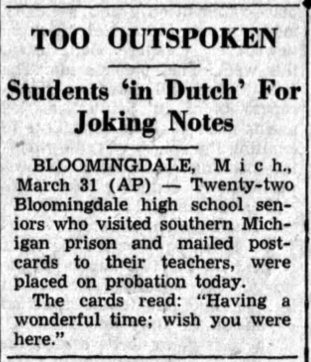
Posted By: Alex - Tue Oct 15, 2013 -
Comments (5)
Category: School, 1930s
Donkey Baseball
Donkey Baseball (which is, as the name implies, baseball played while riding on donkeys) became a popular fad in the 1930s. But it wasn't always fun and games. There was one case of a donkey baseball fatality. In 1934, William Beck fell from his donkey three times in the course of trying to make first base. The fourth time he fell, he fractured his spine and died. [Gettysburg Times - Aug 6, 1934]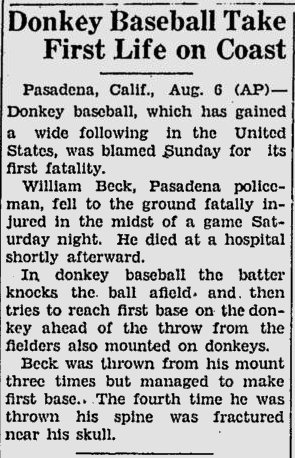
Posted By: Alex - Mon Oct 14, 2013 -
Comments (5)
Category: Death, Sports, 1930s

| Who We Are |
|---|
| Alex Boese Alex is the creator and curator of the Museum of Hoaxes. He's also the author of various weird, non-fiction, science-themed books such as Elephants on Acid and Psychedelic Apes. Paul Di Filippo Paul has been paid to put weird ideas into fictional form for over thirty years, in his career as a noted science fiction writer. He has recently begun blogging on many curious topics with three fellow writers at The Inferior 4+1. Contact Us |




